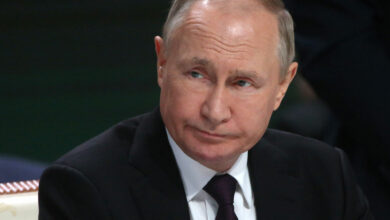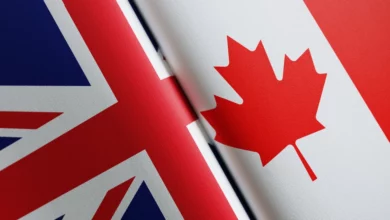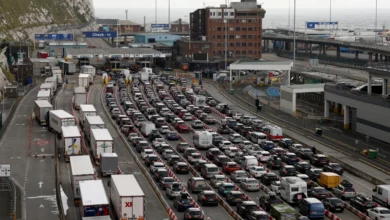
With one hand in his suit pocket and the other mussing his signature blond hair, Boris Johnson on Sunday took the riskiest gamble of his career: to oppose Prime Minister David Cameron by campaigning for Britain to leave the European Union.
If the stars align for London's eccentric mayor and the voters agree with him in a June 23 referendum, his bet could help him win Cameron's job. But if Britons vote to stay in, he could find that he has blown his chance for good.
A natural comedian known to all by his first name, the dishevelled Boris has expertly kept the nation guessing for years as to exactly how high he wanted to climb and what he would be prepared to do along the way.
But on Sunday, on the subject of the EU at least, there was no more beating around the bush.
"You want to ask my views on Europe, don't you?" he jokingly asked a scrum of reporters and cameramen who had been besieging his London home all weekend, desperate to find out which side he would back after Cameron announced the date of the referendum.
"Let me tell you where I've got to, which is that I've made up my mind," he said, revealing that he would push for a "Brexit" and attacking what he described as EU judicial activism and lack of democratic accountability.
It was his boldest move yet in a long-running game of political chess within the ruling Conservative Party, involving not just Boris and Cameron but also finance minister George Osborne, the mayor's main rival to succeed the prime minister.
With Cameron pledging to put his "heart and soul" into the fight to keep Britain in the EU, backed by Osborne and all other serious contenders for the top job, Boris appears to have calculated that it was worth the huge risk of opposing them.
"Best shot"
"Boris's decision to opt for the Leave campaign means one thing — that he thinks this is his best shot at becoming prime minister," said Sonia Purnell, author of "Just Boris", an unauthorised biography that is critical of the mayor.
"His obvious calculation is that Britons will vote for Brexit, leading to Cameron stepping down and his own swift and triumphant coronation as leader and PM," she told Reuters.
It is fitting that the biggest moment so far in his political life should come in a debate about the EU, for Brussels has been a defining backdrop to his life and career.
His father Stanley was a Conservative member of the European parliament and an EU Commission official, and part of Boris's childhood was spent shuttling between Belgium and England.
After his education at Eton boarding school and Oxford University, both elite institutions where he was a contemporary of Cameron, he made his name as a Brussels correspondent for the Daily Telegraph newspaper from 1989 to 1994.
A pioneer of a particular vein of British journalism aimed at ridiculing EU regulation, Johnson has reminisced about "joyous hours" spent writing on subjects such as "the tense international row over the dimensions of the Euro-condom".
He has joked that after his standard introduction, "Britain stood alone last night as…" he would fill in with details like "Europe proceeded with plans to abolish the prawn cocktail flavour crisp" or "abolish the curved cucumber".
The European Commission says many such stories that have appeared in the British press over the years are at best tenuously related to reality. It brands them "euromyths".
Back in Britain, Johnson pursued his media career as editor of the Spectator magazine while becoming a household name thanks to his star turns on the popular satirical TV quiz show "Have I Got News For You".
Survived scandals
Venturing into politics, he was first elected a Conservative member of parliament in 2001 and in following years survived a number of scandals about his complex private life and occasional verbal gaffes to remain a prominent and popular figure.
But it was his election in 2008 as mayor of London, a left-leaning city where he showed that he had sufficient popular appeal to cut across party lines and defeat a Labour incumbent, that really propelled him into the major league of politics.
Re-elected in 2012 for a second four-year term, Johnson has used City Hall as a platform to air his views on a range of subjects well beyond his mayoral remit, not least the EU, and to hone his personal brand, especially during the 2012 Olympics.
His critics say that he has often favoured style over substance, dedicating relatively little time to policy detail and pursuing other interests such as his well-paid regular Telegraph column and a recent book about Winston Churchill.
Having quit his parliamentary position in 2008 when he first became mayor, Boris was re-elected to the House of Commons in last year's general election, a move widely seen as a necessary first step towards a potential bid for Cameron's job.
But Cameron led the Conservatives to an unexpected victory in that election, securing an overall majority of seats, cementing his position as both party leader and prime minister, and shunting Boris and his ambitions to the back burner.
Now, Boris's decision to break rank and campaign for a Brexit has put him firmly centre stage, with everything to play for between now and June 23.




